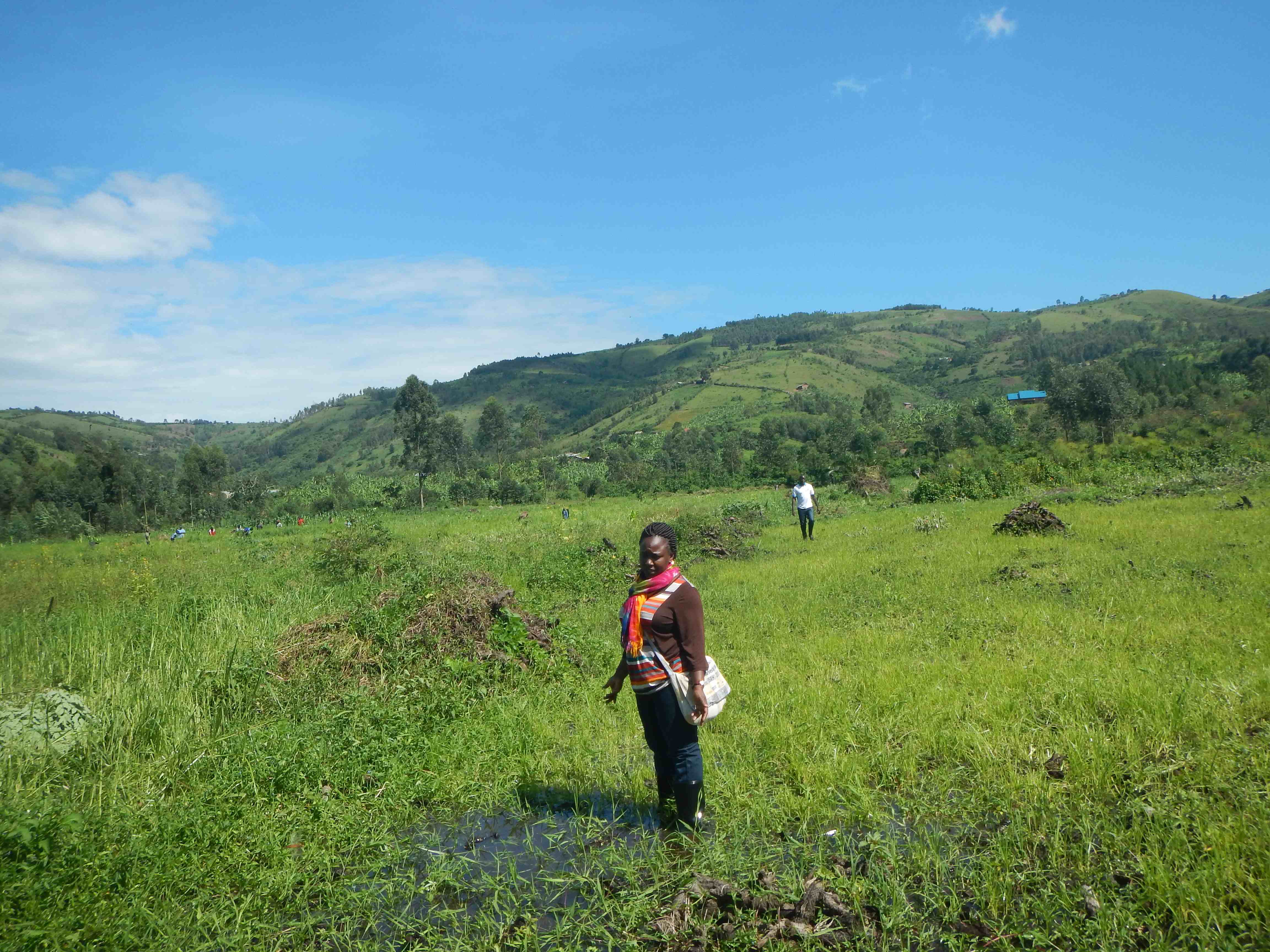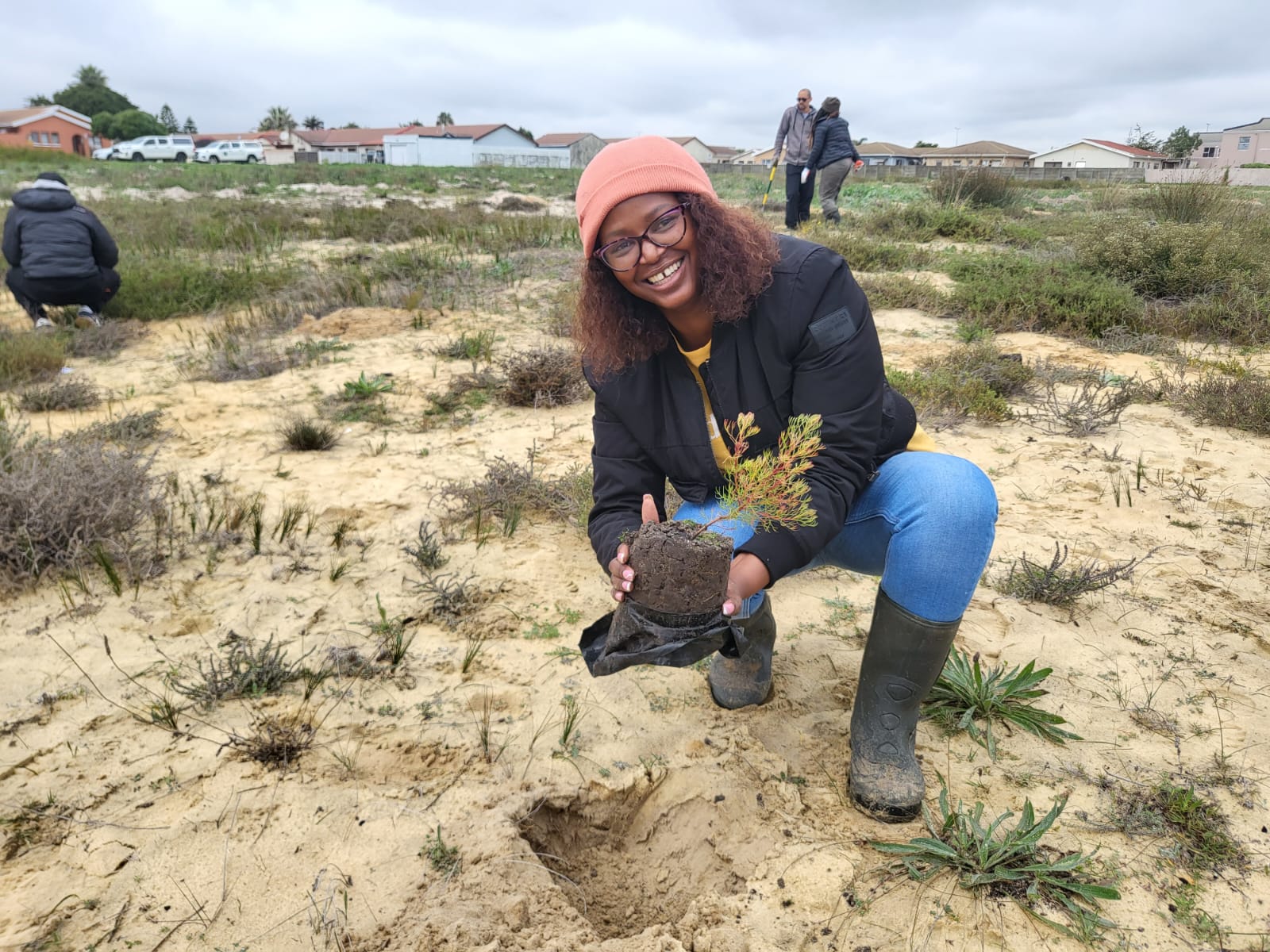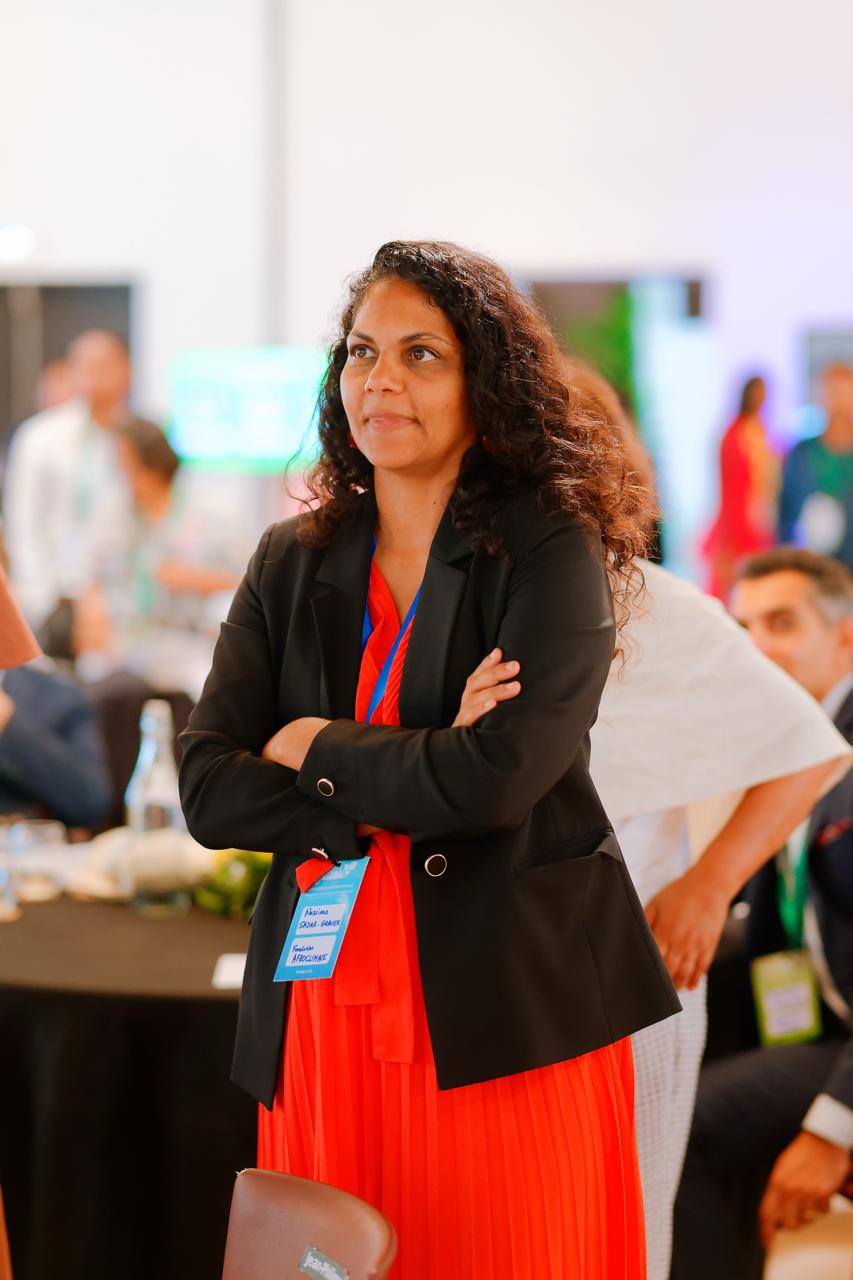Every woman needs to realise that she is enough and can change things.
It is said to whom much is given, much is expected. And in the case of Evelyne Busingye, much has been given. Although she was raised in a modest household, Evelyne received the kind of support from well-wishers that positioned her for greatness. She intends to pay it forward.
A Ugandan national, Evelyne has over 12 years of experience in the environmental sector and has worked for leading international organisations, including the World Wide Fund for Nature (WWF) and the International Union for Conservation of Nature (IUCN). She is currently a senior consultant supporting implementation, partnership building and resource mobilisation with Aidenvironment.
Evelyne's passion is developing simplified and lasting solutions to mitigate the effects of climate change and enhance the resilience of communities, especially vulnerable groups and ecosystems.
The 2022 WE Africa fellow shares insights from her journey with Damaris Agweyu.

Evelyne, what do you value most?
I value being there for others, supporting them, and positively impacting lives.
Why is this important to you?
I am where I am because someone somewhere cared enough to give me a chance. My formal education was made possible through the support of others.
During my secondary school years, my parents struggled to raise the fees; I was constantly sent home for lack of payment. One of the nuns in school noticed this and connected me to the funding that enabled me to complete my education. Fast forward to university, I was a scholarship student for both my undergraduate and master's degree studies.
I always wondered where these resources came from. How was it that people just poured money into supporting the lives of strangers and wanting nothing in return? I'm talking millions that went into my master's education, and we were many students over many years.
This generosity, or the dropping of keys as we refer to it in WE Africa, also happened at the start of my career. I was on a flight heading to Zimbabwe for an exchange learning programme when I met a Kenyan gentleman, Edward Kimwaka. At that time, he was working with WWF-Tanzania. We were sitting next to each other and struck up a conversation. When I told him I was doing environmental studies, he said that one of the directors at WWF-Uganda was his colleague. He gave me his business card and told me to reconnect with him once I completed my studies. And true to his word, Edward initiated an introductory email, vouched for me, and opened the door that jumpstarted my career.
Many people have dropped so many keys for me. This has improved my life. And now that I am in a position to do the same for others, I do it gladly.
How are you dropping keys for others?
Looking back, I have always dropped keys in one way or another. It traces back to my childhood. I'm the second-born child and first-born girl in a family of six children. This position came with a lot of responsibility. Back in my university days, I would get a little allowance for myself. Did I need to use all this allowance, or could I send some of it back home to help my siblings? My default was to consider my family's needs, so I would always send money back home. That sense of responsibility for others stayed with me.
But offering support is not just limited to my inner circle. The people who paid for my scholarships didn't know me. They were not my relatives, but they still supported me. So how can I do the same for others? This question led me to join the Rotary Club, where we pay membership dues and contribute to projects intended to reach out to the needy and most vulnerable communities. However little it is, it makes a difference.
And, of course, I derive a lot of pleasure in helping communities through my work. We have implemented projects that have entirely changed lives for the better. Our most recent project has supported communities in becoming more resilient to the effects of floods and droughts, restoring their dignity and uplifting their livelihoods. In interacting with the people whose lives we have touched, I have learned that when we have hope and take action, things can always change. I feel immense joy whenever I see that I have played a role in helping bring about positive change.
Did you always want to be a conservationist?
Growing up, my dream was to become a medical doctor. I would walk around with a make belief syringe, injecting whatever doll I could get my hands on.
In secondary school, I was biased towards science subjects and deliberately cut out the arts subjects that were not compulsory. For my A-level, I chose Physics, Chemistry, Biology and Mathematics. However, I didn't qualify for a medical course. My results, instead, took me to agriculture.
During my studies, malaria was slowly popping up in areas within my home district, where it had been unheard of. Most of the wetlands had been cleared to make room for agriculture. And this was the consequence. When I learned about this, I decided to widen the scope of my studies to include environmental management. Fortunately, an opportunity arose offering a scholarship to study integrated water resources management at the master's level, and I went for it.
While I was initially obsessed with becoming a medical doctor, I now look back and see that everything worked out for the best. Once I decided to pursue environmental studies, many doors opened for me.
I have a natural inclination to care for people, and the work I do exposes me to larger populations than what medicine would have. In any case, I have a lot of knowledge of the traditional use of herbs for healing, so I am still practising medicine in my own way. And truth be told, I would rather be out in the field, working with communities, than tied to a desk.
What prompted you to join the WE Africa program?
This is yet another example where keys were dropped for me. I learned about WE Africa through a first cohort member, Sophie Mbabazi. She was my immediate supervisor at IUCN. I admired how she worked. Whenever we had an appraisal, she would point out that I needed to work on my confidence. I used to be very timid, you see. When the application notification for WE Africa came through, Sophie immediately prompted me to apply. I told myself that if Sophie recommended it, it must be worthwhile. I am so glad I went for it because the program fundamentally changed me.
In which ways?
One thing I struggled with at work was saying no. My default was to say yes to every task assigned to me. I struggled to manage my workload. I had many sleepless nights. I was stressed out. And as a mother of two young boys, this took a toll. I hardly spent time with my children.
The solution came from my discussions with my WE Africa coach. She helped me fully understand and appreciate the art of delegation. I realised that I needed to trust my team more—trust that they could initiate concepts and see them through with my support in the background.
Implementing this strategy was life-changing. Today, I am in a much better place. I am gradually learning to take on things I can handle and distribute the rest based on the different competencies within my team. Learning to delegate work has reduced my stress and earned me time for my family and myself. My well-being score is now a solid 60%, whereas it was 25% before WE Africa.
I have also learned a lot from the WE Talks; seeing women speak up boldly, even when there's a risk, has given me the confidence to speak up too.
I think WE Africa is a force to be reckoned with in terms of the value it offers. Can you imagine if it was replicated in other sectors so that even more women in leadership positions could derive similar benefits? Because at the end of the day, every woman needs to realise that she is enough and can change things. WE Africa has done that for me.
Have you faced any pushback from your colleagues because of this transformation?
I've had colleagues who've told me they don't understand my newfound patience. Naturally, this patience also benefits them, so they are ok with the new me. I am slowly creating an environment where everyone leverages their strengths to contribute to the success of an organisation and the people they serve. It has all been very positive so far.
What is your definition of success?
Success, to me, means growth—socially, economically, mentally, and spiritually. You can begin small, but if you constantly strive to improve your life, you are successful.
Many people gauge success by the amount of money they have. Yes, there are many billionaires out there. Still, if their growth trend is not exponential in other areas, they're not yet successful.
***
This interview is part of a series profiling the stories of the 2022 WE Africa leadership programme fellows, African women in the environmental conservation sector who are showing up with a strong back, soft front, and wild heart.




